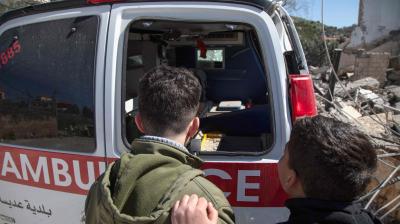‘Bad blood’ fears fuel abuse of kids born of Boko Haram rape
Having been kidnapped by Boko Haram, held for almost a year, and raped by several militants, 28-year-old Aisha Umar could have been forgiven for believing her ordeal was over when she escaped and retu
Having been kidnapped by Boko Haram, held for almost a year, and raped by several militants, 28-year-old Aisha Umar could have been forgiven for believing her ordeal was over when she escaped and returned to her hometown in northeast Nigeria in 2015.
But the mother-of-four was forced to flee her home in the town of Gwoza a fortnight ago when a man threatened to murder her two-year-old boy Mohammed, the son of a Boko Haram fighter.
“He told me that if I didn’t take the child away, he would buy petrol and set the boy on fire until he burned to ashes,” Ms Umar told the Thomson Reuters Foundation by phone from Madagali, 22 km away, where she now lives with her brother.
The man, who saw Boko Haram kill three of his children, was one of many people in Gwoza who made it clear to Ms Umar that her son was not welcome in the community since their return home.
“People didn’t want to play with the child...they called him Boko Haram child,” Ms Umar said, adding that she received the most abuse from those who had lost relatives to Boko Haram.
Women who are former Boko Haram captives, and their children born out of rape, face mistrust and persecution when they return home, according to a report by peace building group International Alert and the UN children’s agency UNICEF.
Many people fear those held by the Islamist militant group have been radicalised and may recruit others when they return home, said the report, which was published earlier in 2016. “There is a belief that the blood of the father will always run in a child’s veins and therefore that these children will eventually turn on their families and communities,” said Rachel Harvey, chief of child protection for UNICEF in Nigeria.

















